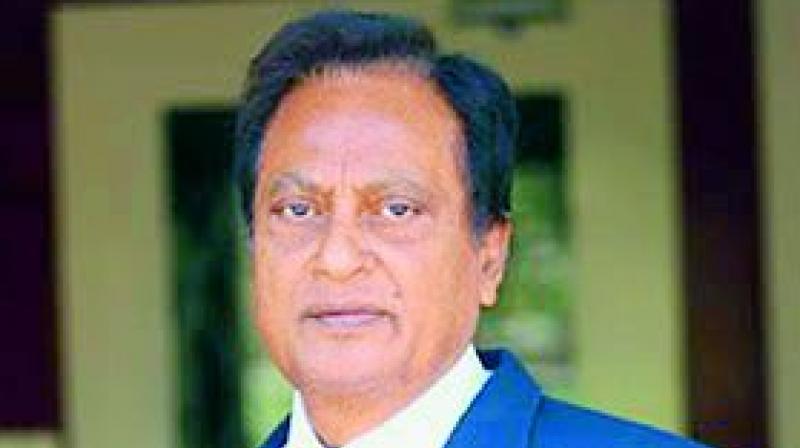IAS officer who is proud of ‘Naxalite’ tag he got while fighting for the poor

Hyderabad: This is the story of an IAS officer who personally visited villages and ensured that the poorest of the farmers got their due against big landlords. So much so, he got dubbed a ‘naxalite’.
Mr Kaki Madhav Rao, who retired as Chief Secretary, says that is the best title of all.
“It was just two weeks after my joining as collector of Warangal, between 1972 and 1974, when a small crowd came to my office. They were poor and wearing blood-stained clothes. They were reclaiming very difficult ‘banchrai’ land (unused government land) on which they had worked for three to four years to bring it to a certain level. With the monsoons approaching, they were transplanting paddy.”
A dispute arose when the “big people” in the village, as Mr Rao calls them, laid claim to the land.
“In the argument that ensued, the poor villagers were beaten up.”
Recalling the incident of nearly five decades ago, Mr Rao says, “I rang up the DSP Jangaon and told him that something serious had happened and that I was bringing the people who had been beaten and he should come to the village directly.”
Once at the village, Gerimellapalli, they learnt that the group had indeed struggled on the land. “We got the other people arrested and let the villages on the land they had worked on,” Mr Rao says.
News of this incident spread: Here was a collector whom they could meet anytime who would render instant justice.
A month later, he sorted out a similar problem in Parakala division. “This resulted in people coming in their hundreds every day, because they had so many complaints and nowhere to go.”
The issues were almost always about land and harassment by the doras. “The poor people would go to the police to complain against the dora, but the police was prepared by the dora. They could go nowhere for redressal, for the tahsildar never saw them, the RDO (revenue divisional officer) never met them, much less a collector,” Mr Rao says.
“There were so many issues that obviously I could not visit all the places. Depending on the urgency of the issue I would ask the RDO to work on it and told him that I wanted results in a week. They started acting. The result was there and was a real, effective, neutral administrative justice,” Mr Rao says.
This was my duty, to protect the citizen. What is needed in administration is not commitment but a neutral sense of justice between right and wrong. Unfortunately it does not happen, he says.
That is why an officer like Madhav Rao becomes a hero.
“The pro-poor policy existed and I was merely implementing it in every area of governmental operation. I had no role to play in anything outside government work,” Mr Rao says.
While he worked by the book, there were politically-loaded situations but Mr Rao came out of the tight situations smelling of roses.
“In those days there was a shortage of fertilisers. The small quantity of fertilisers available was being knocked off by the large farmers. So, I gave in writing that since the fertilisers were limited, it would be distributed village wise,” Mr Rao says.
The fertiliser was to be first distributed to farmers of the ST community, then to SCs farmers, BC farmers and lastly to others. “By the time ST and SC farmers were covered, the fertilisers were exhausted. So, nobody else got it,” Mr Rao recalls.
“The political leaders got worried and thought I was going too far. The zilla parishad chairman, a soft-spoken man, told me that the others wanted to discuss the matter and pass a resolution that this order had to be withdrawn.”

